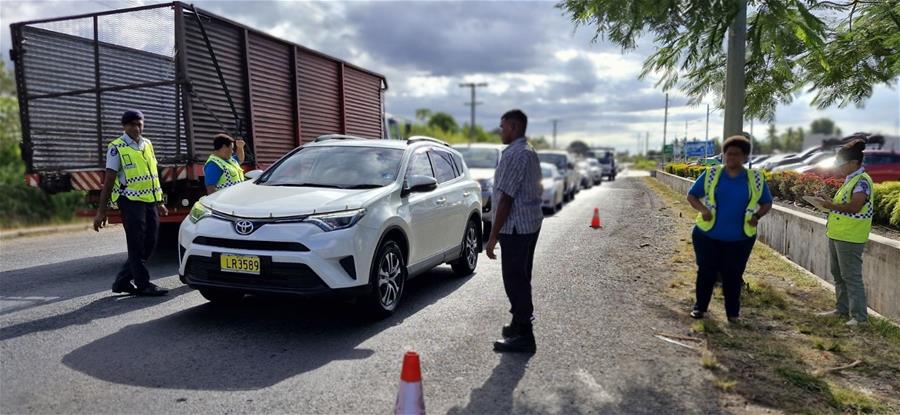SUVA, Fiji (20th October 2025): With the Diwali public holiday tomorrow and many Fijians expected to travel across the country to celebrate with family and friends, the Land Transport Authority is reminding all road users to make road safety their top priority during this festive period.
The Authority is urging drivers to exercise patience, remain alert, and maintain full control of their vehicles at all times to prevent unnecessary tragedies on the road. The reminder comes as the country recorded another road fatality yesterday morning along the Queens Road near Navo, Nadi.
According to preliminary police reports, a man in his late 50s lost his life after the vehicle he was travelling in veered off the road.
LTA Chief Executive Officer, Mr. Irimaia Rokosawa, said the Authority continues to stress the importance of proper steering control as a critical part of safe driving, particularly as traffic increases during festive and holiday periods like Diwali.
“While speeding, driver fatigue, and careless driving are often cited as the major causes of accidents, poor steering control is another significant factor that cannot be ignored,” said Mr. Rokosawa.
“We are again urging all drivers to keep both hands firmly on the steering wheel at all times. This simple habit can be the difference between a safe journey and a tragic one.”
He explained that drivers who steer with one hand or allow distractions to interfere with their control of the vehicle are more likely to have slower reaction times, which can lead to collisions that could otherwise be avoided.
“Without both hands on the wheel, especially when combined with speeding or fatigue, a driver’s ability to react swiftly to sudden obstacles, potholes, or changes in road conditions is significantly reduced. This is particularly dangerous on winding roads, in wet weather, or during heavy traffic,” Mr Rokosawa said.
Under the Land Transport (Traffic) Regulations 2000, Part III - Division 4 (45(1)), it is mandated that ‘A driver while driving on a public street must drive with both hands firmly on the steering wheel unless (a) when changing gear or otherwise operating other vehicle controls; or (e) with the written approval from the Authority, for medical reasons or physical handicap but the approval may be restricted to a driver of specially equipped vehicles’.
Mr. Rokosawa noted that it is not uncommon to see drivers resting an arm out the window, holding a phone, or engaging in other distracting behaviours while driving. These actions compromise a driver’s ability to maintain proper control, particularly when sudden reactions are required.
“This behaviour is also observed among Public Service Vehicle (PSV) drivers, who carry the additional responsibility of ensuring the safety of their passengers,” he said.
“For PSV operators, both hands on the steering wheel should be non-negotiable. Their focus must remain on the road and their passengers’ safety at all times.”
In preparation for the Diwali public holiday, the LTA will continue to maintain an active presence on Fiji’s roads. Staff and management teams have been rostered across all divisions to conduct roadside interventions, monitor driver behaviour, and enforce compliance with traffic regulations.
Mr Rokosawa says these teams will also be engaging with drivers and passengers to promote responsible driving habits, share safety reminders, and encourage adherence to road rules.
“Our teams will be out throughout the Diwali holiday, working alongside enforcement partners to ensure that road users are not taking unnecessary risks. We urge everyone to cooperate with our officers, comply with traffic directions, and make responsible choices behind the wheel,” the CEO said.
“We are also calling on all Fijians to exercise care and consideration, especially road users. Firecrackers set off too close to roads can cause sudden flashes and loud noises that may startle or temporarily blind drivers, increasing the risk of accidents.”
He further reminded motorists to check their vehicles before travelling, rest well before long drives, avoid using mobile phones while driving, and refrain from consuming alcohol or drugs if they intend to drive.
“As families gather to celebrate the Festival of Lights, let us also shine a light on safety. Road safety is everyone’s responsibility, whether you are a driver, passenger, or pedestrian.”
The LTA extends its warm Diwali wishes to all Fijians and calls on every road user to make safety a part of their celebration because every life matters.
